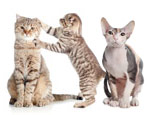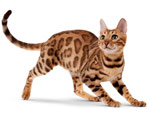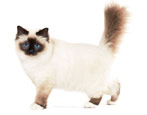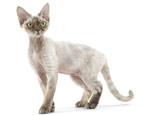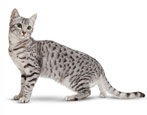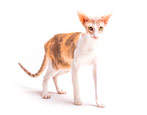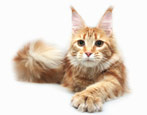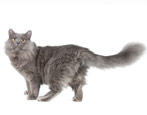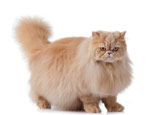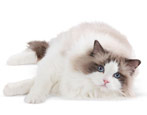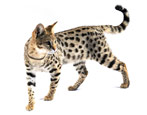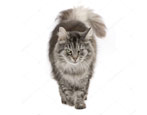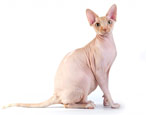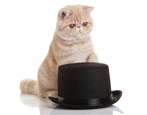How long do Persian cats live?
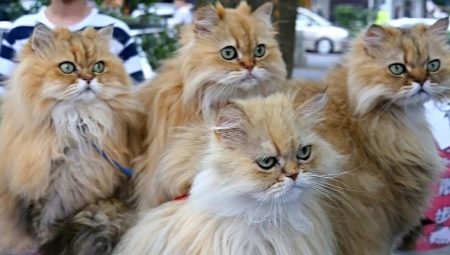
Persian cats are very interesting animals. Everyone knows about them, and everyone treats them differently: someone loves, and someone does not, but no one remains indifferent. They gained their fame in Russia only at the beginning of the XXI century. And they got it thanks to their unusual appearance and wonderful character. From the owner of this breed of cats, you will never hear a bad word in their direction. And, on the contrary, only positive reviews about them.
They rarely wear furniture. They will not make sounds if they want to beg for their favorite delicacy. They accurately understand and feel their owner, and know when it is better not to touch him. Most people may take this for indifference to everything that happens, but it is not. These cats have a very sensitive soul, and they keenly feel absolutely everything.


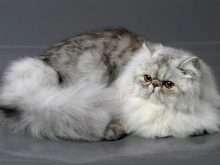
Character traits
These cats are very friendly. They love their owners, and constantly need a reciprocal manifestation of love.
Under no circumstances will they show aggression, even an unfriendly attitude towards them.
It is safe to say about such cats that they are domesticated.... And they need care and love.
Most people think they are not very smart, but this is a misconception. Persian cats are one of the smartest breeds. They always understand you, in addition, these animals are highly trainable. If you want, you can easily teach your pet to walk according to its natural need directly to your restroom. Another plus is that they get along well with other animals.
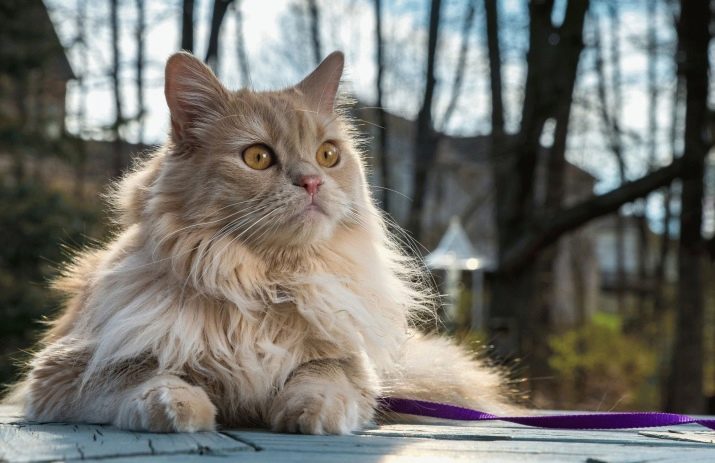
How long do they live?
The average life span of Persian cats is 18 to 20 years. But there are also specimens that live up to 25 years. Cats survive to this age thanks to genetics and good grooming. And in order for your animal to live with you as long as possible, you just need to properly care for it.
Life expectancy is influenced not only by genetics, but also by care, nutrition, exercise, proper hygiene, sterilization or castration, and vaccinations.
Persians differ from other breeds in that they have long hair and a flattened muzzle.... And if you do not properly care, then the animal can get sick. And due to the special structure of the respiratory system, his body does not resist various infections poorly. And in front of them cats, one might say, are defenseless. To protect your pet from a dangerous illness for him, every year you need to get a flu shot.
If you have little time to keep track of your pet's fur, then you shouldn't start this breed at all. Since the Persians' coat is very thick, a large number of tangles quickly appear on it. And because of them, the animal's condition worsens.
In addition, if you are not going to breed the breed, then the animal must be neutered or sterilized.
Failure to do this can lead to serious health problems, including cancer.
When acquiring yourself a Persian, you should take the strongest one. After all, if a kitten was born healthy, then he has a greater chance of a long life.
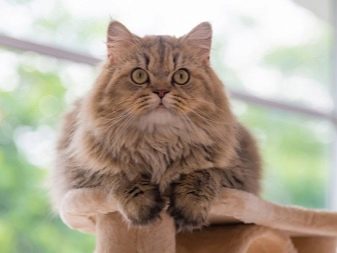
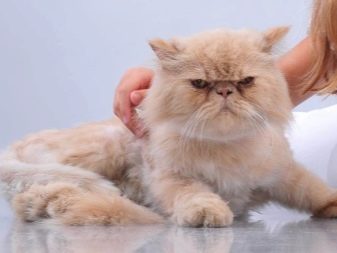
How to renew?
Proper care of these animals helps to prolong the life of these animals. But this breed is much more difficult to care for due to the structure and appearance of cats.
Hair care
Since the Persians have a very long coat, it must be constantly combed out so that mats do not appear.
This should be done with a metal comb with teeth rounded at the ends.
Brushing the coat should be done every day. And during molting, this is done twice a day. Cats should be taught to this process from an early age. It is not recommended to use a slicker. This item is used by specialists to prepare the animal before the exhibition. And they pass her only on the paws and muzzle.
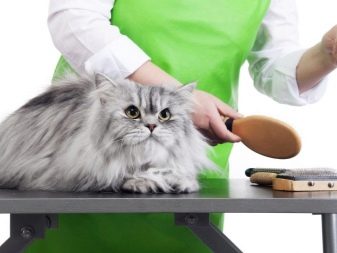
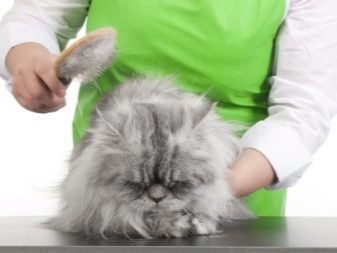
Bathing
Washing a Persian cat is a necessary process. It must be carried out at least once a month. During molting, it is worth washing more often so that mats do not form. In this case, it is necessary to use shampoo for animals with long hair, which is purchased in specialized stores.
After you have bathed your pet, you need to dry it first with a soft towel, and then with a hairdryer, at a minimum speed.
It is impossible for the animal to dry naturally. It is necessary to accustom you to bathing and a hairdryer from early childhood.
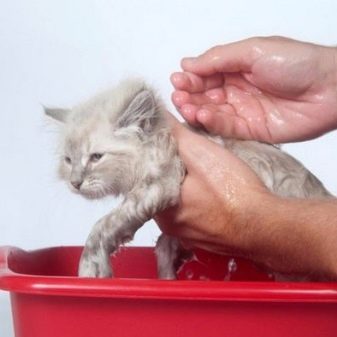
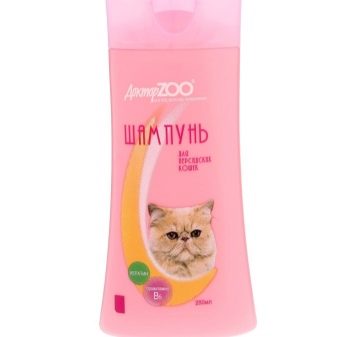
Cleaning the ears, eyes, nose
One of the most important hygiene procedures is eye, ear and nose care. If you do not carry it out, then your pet will be sick. The ears are treated once a week with cotton pads, but first they need to be moistened with an ear care solution.
The eyes must be wiped with a soft cloth, which is also moistened with a special solution.
This manipulation should be carried out more often, once every couple of days, and even better - every day. The nose is processed once a week with a calendula solution. In the event that a strong discharge has gone, it is worth contacting a veterinary clinic, and acting as directed by a doctor. All necessary treatment solutions can be purchased at the pet store.
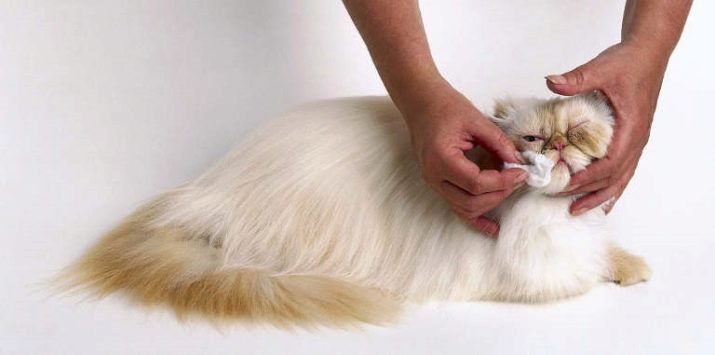
Nutrition
Here you need to choose food that is suitable for age. If you sometimes feed your pet with dry food, then it should be selected for kittens, spayed and adult cats separately. It is strictly forbidden to feed them with cheap food.
If you will be creating a natural diet for your pet, then it should consist of 40% meat, 20% dairy products and eggs, 15% offal, 15% fiber and 5% seafood. Such a diet is a priority for Persian cats.
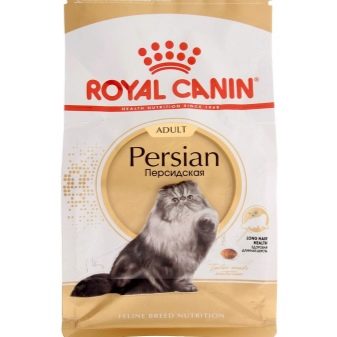
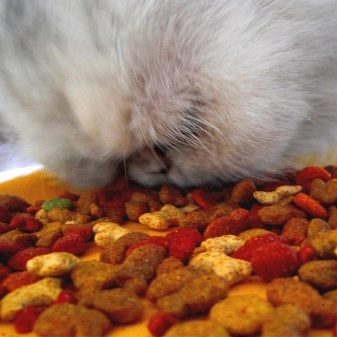
Common diseases
This breed has certain diseases that are hereditary. And they can shorten your pet's lifespan quite dramatically. These ailments include heart disease, which is the most common problem. Also, cats suffer from problems with the urinary system, polycystic kidney disease.
Very often, such diseases do not manifest themselves in any way in the early stages, and the first signs appear too late, and it is they that can cause death.
Therefore, in order not to miss the development of the disease at the initial stage, you should regularly visit your veterinarian.
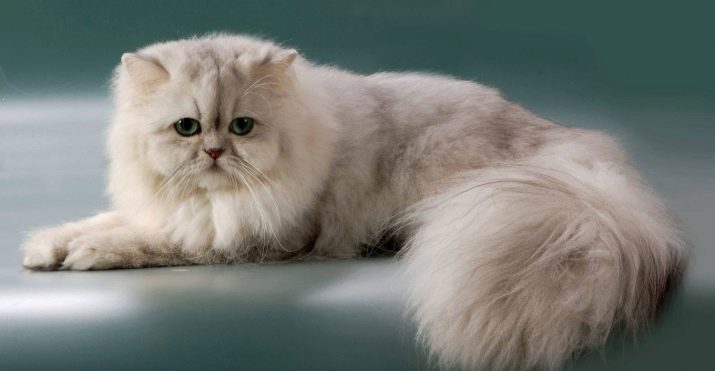
Interesting Facts
Finally, consider a few incredible facts that will be of interest to owners of furry aristocrats.
- It was the Persian cats that set the record for coat length. And the longest coat was 23 cm.
- The most ardent admirer of this breed was the French cardinal. He very rarely appeared in society without his pet.
- Many consider these cats to be very lazy and slow, but they are not. They are also excellent hunters, and can catch small prey without any problems.
- Persians almost never make sounds, and they attract attention to themselves with the help of their piercing gaze.
This cat breed lives for a long time. But if you do not provide them with proper care, care and love, then life expectancy can be reduced.
Such cats really need care, and if you do not have that much time for their care, then it is better not to have this breed of cats.



For other interesting facts about Persian cats, see below.
